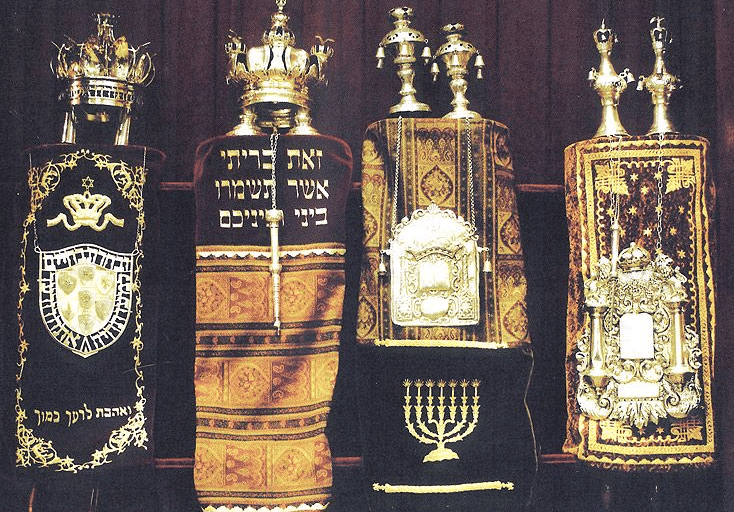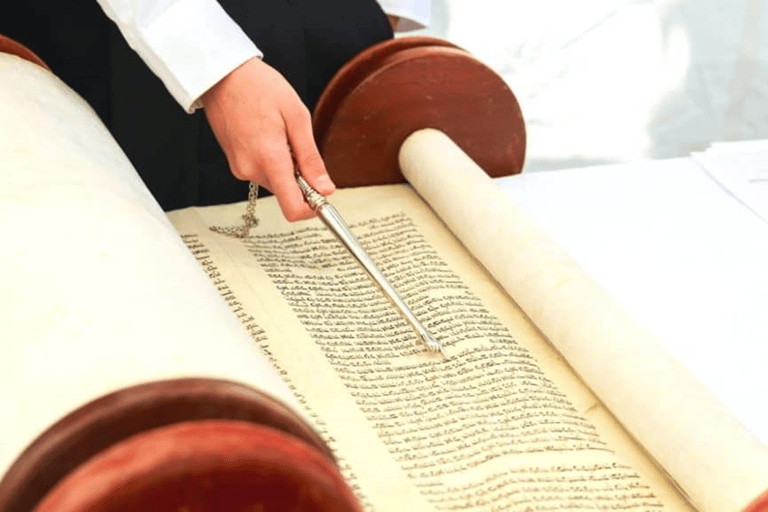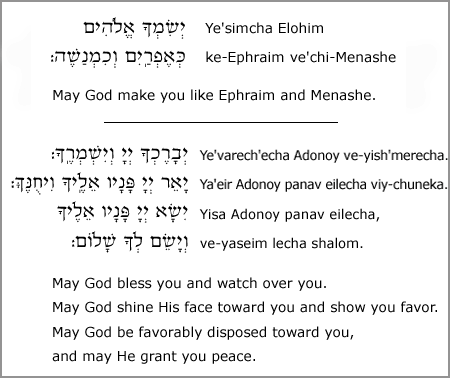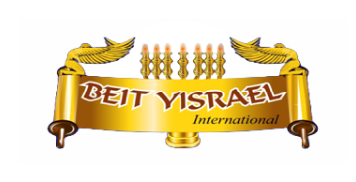Bar-Bat-Mitzvah
Perhaps you have heard someone say:
“We learn from the Torah…
The Talmud teaches…………………………………”


B’Nai Mitzvah- Bar/Bat Mitzvah
Torah can mean many things. It can mean: A Scroll, The Five Books of Moses, and Part of the Bible, History of our People, Israel Law, and Guide for Israel Life and Commandments from G-d, A Tree of Life. Torah is all of these things. It is as life-giving as a tree. That is why we call it a tree of life. It is the scroll that we read in synagogue.
From the age of thirteen and onwards, a boy is considered a man and is thus obligated in all mitzvot. On his thirteenth birthday, the young man is called a "Bar Mitzvah," which literally translates as: the Son of the Mitzvah.
According to Torah law, a child only becomes an adult when he reaches the age of bar and show signs of physical maturity (Shulchan Aruch Harav, Orach Chaim 55:12; see Maimonides, Laws of Ishut ch. 2 as to what these signs are). For matters of rabbinic nature (being a chazzan, etc., as enumerated below), we consider a thirteen year old an adult—on the presumption that most boys that age have physically matured (Shulchan Aruch Harav, ibid. 55:6). In matters of Torah obligation, however, it's necessary to ensure that the boy has reached puberty.
Sages used to say:
At five years of age the study of Scripture; Psalms
At ten the study of Mishnah; Torah Five Books-Oral Torah
At thirteen subject to the commandments;
At fifteen the study of Talmud-Method of Study-Torah Commentaries – Sages Notes
At eighteen the bridal canopy;
At twenty for pursuit [of livelihood];
At thirty the peak of strength;
At forty wisdom;
At fifty able to give counsel;
At sixty old age;
At seventy fullness of years;
At eighty the age of “strength”;
At ninety a bent body;
At one hundred, as good as dead and gone completely out of the world.
What is Bar Mitzvah?


(Hebrew: בת מצוה)
"Bat" is daughter in Hebrew and Aramaic.
Bat = “daughter”
Mitzvah = “commandment”
a girl turns 12 age
Bat mitzvah
Bat mitzvah is Hebrew for “daughter of commandment.” When a Israel girl turns 12, she has all the rights and obligations of a Israel adult, including the commandments of the Torah
Note: Isaiah 43:21 (“These men I formed for myself, and they shall speak my praise”)
Why Bar & Bat Mitzvah and What is the Significance
Son of commandment
Bar mitzvah literally means, “son of commandment,” and can be understood to mean, “a man who is a part of the community of people who are bound by mitzvoth. First, let's understand what the words "Bar (or Bat) Mitzvah" actually mean. The phrase translates as "son (daughter) of commandment" – i.e. the young person becomes responsible to observe the commandments (mitzvot) of the Torah
Responsibility- Life
Before reaching the bar mitzvah or bat mitzvah age, the child’s parents hold the responsibility for the child’s actions. After this age, the boys and girls bear their own responsibility for Israel ritual law, tradition, and ethics, and are able to participate in all areas of Israel community life.
In addition to being considered accountable for their actions from a religious perspective, a thirteen-year-old boy may lead prayer and other religious services in the family and the community.
Simchah of the Bar Mitzvah
There are five aspects to the simchah of the Bar Mitzvah.
The simchahof the boy — that he has reached the age of obligation of mitzvos. This is of great merit, as the Mishnahstates, “Rabbi Chananiah ben Akashia says: The Holy One Blessed be He, wished to confer merit upon Israel; therefore He gave them Torah and mitzvos in abundance.”
The family simchah— of the parents, grandparents, brothers and sisters — having the merit of raising the boy and in turn those seeing true Yiddishe Nachasfrom him.
The simchahof the Israel Community people — at having yet another fully obligated Israel join their ranks- Reaching the age of Baal or Bat Mitzvah means becoming a full-fledged member of the Israel community with the responsibilities that come with it.
The simchahof Hashem— since every single Israel is a child of G‑d, as it states, “My son, My firstborn, Israel,”
Simchah of Torah- In Pirkei Avot, it is said that while 13 is the proper age for fulfillment of the Commandments. “to Love, Honor and Keep the Holy Torah.”
Brit Hadshah - Yeshua Ha Tzaddik
“After three days they found Him [Yeshua] in the temple courts, sitting among the teachers, listening to them and asking them questions.” (Luke 2:46)
Yeshua -was examined by the Temple priests and teachers at the age of 12. (Luke 2:41–52).
This may indicate that even the Mashiach was Bar Mitzvahed, passing through the rites of His day. As one of few events
What is Bat Mitzvah?


(Hebrew: בר מצוה)
"Bar Mitzvah" literally means "Son of the Commandment." "Bar" is "son" in Aramaic.
Bar (בַּר) is a Aramaic word literally meaning “son” (בֵּן), B’not (בְּנוֹת) = Daughters
A bar mitzvah is for a boy, and a bat mitzvah is for a girl.
Bar = “son”
Mitzvah = “commandment”
Additionally, when a boy turns 13 and a girl turns 12, they are considered to have reached the “age of maturity,” a time when they have developed enough understanding to be responsible for their actions
Gematria:
the Gematria of the noun “Love” (Ahava) equals ‘One’ (Ekhad).
אהבה = אחד = 13
Torah (the Law or instruction), avodah (service to God), and g’milut chasadim (acts of loving kindness). (Avot 1:2)
So great is the mystery hidden in the three letters that compose the Hebrew verb for “Love” – Alef, Hei and Beit – אהב.
Alef stands for ‘One’ (=1), and for ‘Alufo [shel Olam]’ (the Ruler of the universe); the first time Alef appears in Torah, it’s the first letter of the word “Elokim” (God); and is used as the first letter of many of God’s names such as El, Adonai or Ekyeh. It’s also the particle ‘Ani’ (I, me).
Hei stands for bestowing and receiving, as in the verse: “take [hei] for yourselves seed” (Gn 47:23). The form of the Hei is like a window in the heart opened for tolerance (cf. Tomer Devorah 1:7). It also stands for “existence” (haya – היה).
Beit is a house (Bait), “The mystical House” which is Creation – Beriah (which starts with letter Beit – בריה). And man is a microcosmic Beit haMikdash (a little Sanctuary – ביתהמקדש). The connection Alef-Beit represents the connection between Father (Avאב ) and son (Ben – בן).
Notes: 13, mystery and beauty of unity. That’s why the tribes had to be 12, because with G-d they become 13 (= Ekhad, one = ahavah, Love).
Mitzvah Procedure Steps for the Prayers and Blessings:


BAR & BAT MITZVAH-PRAYERS
Step 1: Get Called up
Step 2: Prepare to bless
Step 3: The Blessings-Chuppah
Step 4: Torah Reading
Step 5: Fathers Blessing
Step 6: Community Blessing-Wine
Step 7: Aaron Blessing
Step 1: Get called up
The gabbai (beadle) announces in Hebrew: “Arise, (your name) son of (your father’s name)!”
Step 2: Prepare to bless
The reader will show you where the Torah reading begins and ends. Touch the beginning and end of the Torah reading with the corner of your tallit (or the Torah’s sash) and kiss it. Close the Torah and hold both handles while reciting the blessing.
Step 3: The blessings
Start by saying the following:
בָּרְכוּ אֶת יְיָ הַמְבֹרָךְ.
This is what it sounds like:
Ba-r’chu et a-do-nai ha-m’vo-rach.
This is what it means:
Bless the Adonai who is blessed.
The congregation responds:
בָּרוּךְ יְיָ הַמְבֹרָךְ לְעוֹלָם וָעֶד.
Repeat after the congregation:
בָּרוּךְ יְיָ הַמְבֹרָךְ לְעוֹלָם וָעֶד.
This is what it sounds like:
Ba-ruch a-do-nai ha-m’vo-rach l'o-lahm va-ed.
This is what it means:
Blessed be the Adonai who is blessed for all eternity.
Now recite the following blessing:
, בָּרוּךְ אַתָּה יְיָ אֶלֹהֵינוּ מֶלֶךְ הָעוֹלָם, אֲשֶׁר בָּחַר בָּנוּ מִכָּל הָעַמִּים, וְנָתַן לָנוּ אֶת תּוֹרָתוֹ. בָּרוּךְ אַתָּה יְיָ, נוֹתֵן הַתּוֹרָה.
This is what it sounds like:
Ba-ruch a-tah A-do-nai Eh-lo-hay-nu meh-lech ha-o-lahm, a-sher ba-char ba-nu mi-kol ha-a-meem, v’na-tahn la-nu et Torah-toh. Ba-ruch a-tah A-do-nai, no-tayn ha-Torah.
This is what it means:
Blessed are You, Adonai our Elohim, King of the universe, who has chosen us from among all the nations and given us His Torah. Blessed are You, Adonai, who gives the Torah.
The congregation will respond “Amen.”
Step 4: The Torah Reading
While the Torah is being read, hold the handle of the scroll nearest you. If possible, follow the Hebrew words inside the scroll and read along silently
The second blessing
בָּרוּךְ אַתָּה יְיָ אֶלֹהֵינוּ מֶלֶךְ הָעוֹלָם, אֲשֶׁר נָתַן לָנוּ תּוֹרַת אֱמֶת, וְחַיֵּי עוֹלָם נָטַע בְּתוֹכֵנוּ. בָּרוּךְ אַתָּה יְיָ, נוֹתֵן הַתּוֹרָה.
This is what it sounds like:
Ba-ruch a-tah A-do-nai Eh-lo-hay-nu meh-lech ha-o-lahm, a-sher na-tan la-nu toh-raht e-met, v’cha-yay o-lahm na-ta b’toe-chay-nu. Ba-ruch a-tah A-do-nai, no-tayn ha-Torah.
This is what it means:
Blessed are You, Adonai our G‑d, King of the universe, who has given us the Torah of truth and planted eternal life within us. Blessed are You, Adonai, who gives the Torah
Mazal Tov!
Step 5: The Father’s blessing
The father of the bar mitzvah boy should accompany him to the bimah for his aliyah, and stand to one side as the blessings are being recited. Following the aliyah, the father recites a special blessing thanking G‑d for reaching this auspicious moment.
There are a few variations of the blessing. Here is the Chabad version:
בָּרוּךְ שֶׁפְּטָרַנִי מֵעֹנֶשׁ הַלָּזֶה.
This is what it sounds like:
Baruch sheptarani mei-onsho shelazeh.
Baruch Atah Adonai, Eloheinu Melech ha-olam,
(For a male) shep’tarani mei-onsho shelazeh.
(For a female) shep’tarani mei-onshah shelazot.
This is what it means:
Blessed be He who has released me from being punishable for this [boy].
"Blessed is the One who has freed me from responsibility for this boy."
The bar mitzvah boy is now a full-fledged member of the Jewish people, and as such, he is responsible for his own actions. Until this point, his parents could claim credit for his accomplishments, but they also had to take responsibility for his mistakes. Now that he is officially an adult, they are relieved of that responsibility. This blessing expresses that transition.
Step 6: Community Blessing- Chuppah and Wine
Baruch atah Adonai, Eloheinu melech ha-olam, borei p’ree hagafen. Amen.
Blessed are You, G-d, Spirit of the Universe, who creates the fruit of the vine. Amen.
Our hearts are one on this joyous day as you commit yourself to a life of Torah:
a life, we pray, filled with wisdom, caring and righteous action.
We pray that you will grow each day in compassion for the needy,
in concern for the stranger, in love for all people.
Made the one who blessed our ancestors,
Abraham and Sarah, Isaac and Rebecca,
Jacob and Rachel and Leah,
bless you on your becoming a Bar/Bat Mitzvah.
May you grow with strength and courage,
with vision and sensitivity.
And may you always be certain of our love.
May you live to see your world fulfilled, may your destiny be for worlds still to come,
and may you trust in generations past and yet to be.
May your heart be filled with intuition
and your words be rich in understanding.
May songs of praise ever be upon your tongue,
and your vision clarify a straight path before you.
May your eyes shine the light of Torah
and your face reflect the brightness of the heavens.
May your lips ever speak wisdom
and your fulfillment be in righteousness,
even as you ever yearn to hear the words of
the Ancient One of Holiness.


Step 7: Aaron Blessing
Aaron Blessings: Numbers 6:24–26
Yevarechecha AdonaiVe'yishmerecha.
Ya'er Adonai panayv eylecha Vi'chuneka.
Yissa Adonai panayv eylecha ve'yaseym lecha Shalom.


